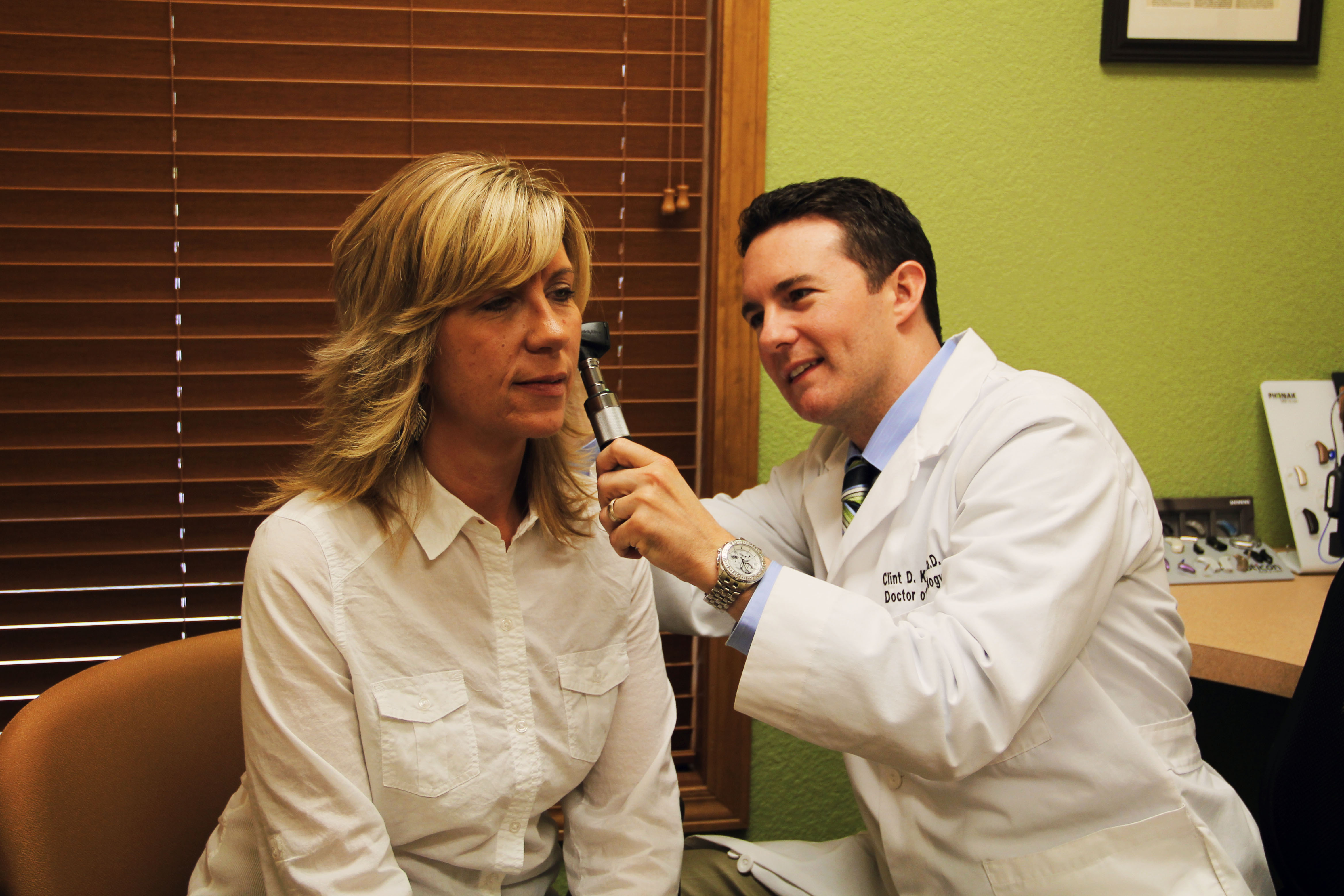Tinnitus (pronounced “TIN-uh-tis” or “ti-NITE-us”) is the perception of sound within the ear in the absence of a corresponding external sound. Tinnitus affects 1 in 5 people and symptoms vary greatly among individuals in relation to loudness, pitch, quality (“buzz” vs “ring”), and how often it occurs (intermittent or constant). Although many people gradually adjust to their tinnitus, the effects of tinnitus can be quite debilitating for others, leading to poor sleep, anxiety, and feelings of distress.
Tinnitus is much more likely to accompany hearing loss and can be an early sign of noise-induced hearing damage. While it is not always possible to identify the cause, this internal sound often can be found as the result of medications or impacted earwax. Additionally, some forms of tinnitus can be a sign of another (more serious) underlying problem, such as vascular disorder or a tumor in rare cases. A sudden onset or change in tinnitus and/or unilateral (only in one ear) symptoms especially should not go unchecked.
A tinnitus evaluation is used to document characteristics about your hearing loss, both quantitatively (matching to loudness and pitch of tones in a sound booth) and qualitatively (how it personally affects you). This information will assist Dr. Keifer in determining the best course of management for your individual case, which may include monitoring, counseling, treatment, and/or further evaluation.
To learn more, click on the following links to information written by Dr. Clint Keifer:
Toledo Hearing Doc – Tinnitus: definition, causes, and treatments
Tinnitus (Ringing of the Ears): What’s all the noise about?









